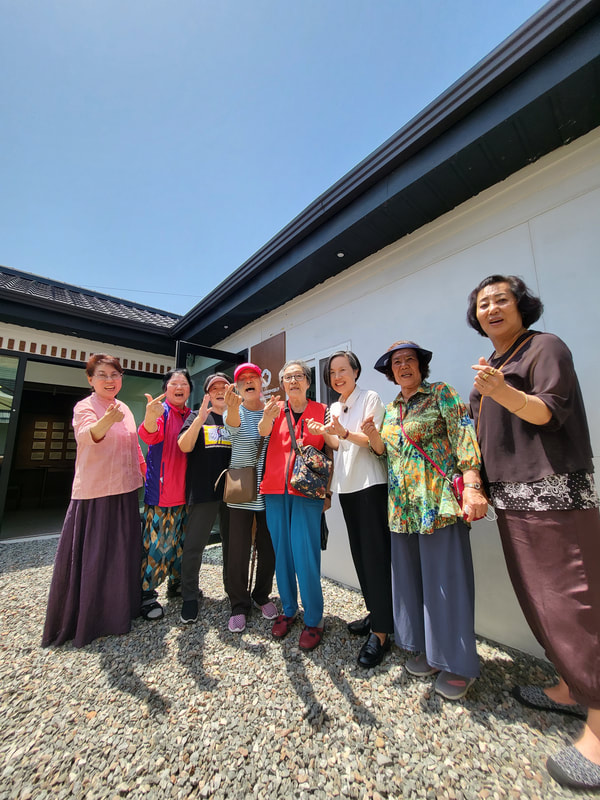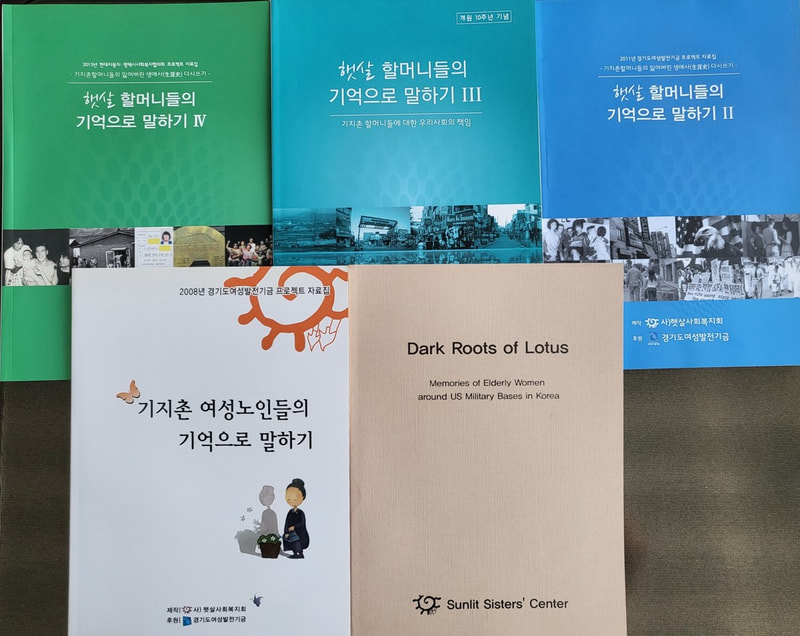|
On May 16, Sung visited Gijichon* Women’s Peace Museum-Seven Sisters and Sunlit Sisters’ Center in Pyeongtaek, South Korea. The survivors were busy preparing for the play, Off Limit, a story of their life journey, focusing on the present. The play will be held in July. During the discussion, referring to the Sept. 29 court case last year, one survivor said, “It was the happiest day of my life.”
On Sept. 29, 2022, South Korea’s highest court ordered the state to pay compensation to women who were forced or coerced into military sexual exploitation in so-called “camptowns” or Gijichon that developed around U.S. military bases. Recognizing the state’s responsibility for encouraging and justifying the military exploitation, the court ordered the state to pay between 3 million and 7 million won (approximately $2,100–$4,900) in compensation each to a total of 95 former Gijichon women. *South Korea is home to the largest U.S. foreign military installation. Structured sexual violence at so-called “camptowns” or Gijichon developed around U.S. military bases in South Korea after the Korean War (1950–53). To learn more about the connection between U.S. militarism and sexual exploitation in South Korea, read this article from ESJF’s intern, Esmé Lee-Gardner’s brief research, U.S. Militarism and the Asian Diaspora.
0 Comments
Leave a Reply. |
CategoriesCategories |
Proudly powered by Weebly



 RSS Feed
RSS Feed